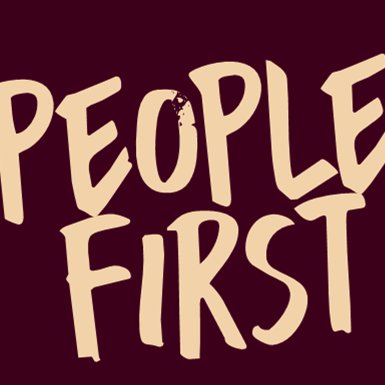Good Brands Make a Move, but Great Brands Plan for the Response
A race car driver can go incredibly fast and still crash if they only focus on what is directly ahead.
3 min read
 Bovitz
May 1, 2022 1:49:00 PM
Bovitz
May 1, 2022 1:49:00 PM
April Fool’s. Well, that was fun.
It was fun to be silly for a couple of day—to drop some vowels and throw a dot into our brand name, just to see what it was like to be hip, trendy, and in the club of current naming conventions as BVTZ.ly. But to be honest, we’d rather not be in that club. We’d rather not be just another me-too in a sea of me-too’s.
After all, if we’re doing what everyone else is doing, how can our uniqueness shine through?
But to be clear, we’re not talking about uniqueness for uniqueness’s sake. We’re talking about being unique with meaning. And these days, too many naming conventions are neither unique nor meaningful. Which is, at the very least, mind-boggling, and at the worst, means that they’re not memorable. There’s a whole world of words out there, and if you can’t be thoughtful and creative enough to find one that fits your offering like a glove, you might as well forget about the prospect of being top-of-mind when people think of your category.
And when you’re just starting out, sheer awareness of your brand is prized territory. It’s exactly where you want to be—taking up even the tiniest of spaces in people’s minds, whether you got there through advertising or through the grapevine. And once you’re there, the most organic way to grow your space is to forge connections with what’s already there, or ideas that people already know and associations that they already have. This is how you really put your roots down before people learn more about your brand and start developing new connections with the name.
Let’s try this out. Here are a few examples of how your mind might work:
Casper. Casper is a ghost. Ghosts are white and scary, and they haunt people. Casper is the friendly ghost. Christina Ricci is a friends of Casper’s. I love Christina Ricci… Yeah, I’m not getting anywhere close to a mattress.
Facebook. A book of faces. Like a yearbook. Aw, remember when people signed your yearbook? That was such a fun way to connect with other people, leaving them messages and memories.
Pixlr. Pixel…er? Pixar? Twizzler? I was thinking pixel, but then I got thrown off there at the end. Or is it Pix…ler? Pix like photos? Then what’s “ler”?
Bit.ly. I got nothin’.
Snapchat. Snap, snap! Make it quick. A quick chat. Got it.
Etsy. Itsy? Bitsy? Spider? Sounds playful—in a sort of tiny and cute way, maybe. Idk, baby booties?
Alfred. Sounds like a guy with long red hair and a handlebar mustache… or a butler. Oh, Alfred! I love Michael Caine. The best butler there ever was. He could do anything.
These might all be unique, but they’re not all meaningful. Which makes them not all that memorable either, and it doesn’t do anyone any good if they can’t remember your name. Ok, so what’s in a name, really? The answer is that it depends.
When you’re a new brand, your name is really all you have. Nobody knows anything about you yet, so people have to try to fit you into the world they already know based on very little information. So, that information—that name—needs to be sticky. It has to mean something.
It’s not until you’ve been around for a while that you can get away with a name that doesn’t clearly or cleverly indicate what you’re all about. But that’s not some sort of seniority privilege—it’s because by that time, if you’ve done enough things right, you’ve transformed the meaning of your name in people’s minds, from an ordinary word to the value that you bring to their lives.
Let’s try this again:
Google. Where you go to search for anything and everything on the Internet. Oh, and I think it’s a really big number, too.
Target. Where I spend way too much money on cool home stuff. Oh, and like a bullseye, or what you aim something at.
Amazon. Where I go to buy anything and everything online. Oh, and some place in South America.
When you get to this point, your name could be Wall or Betty or Rumpelstiltskin, and it won’t matter: people will remember you because you mean something to them.
Now let’s be real—not everyone is going to turn into a Google, a Target, or an Amazon. Not everyone is going to be able to start out with a name that means nothing and turn it into one that does. So, give yourself a leg up right from the beginning. When you’re thinking of developing a new brand or starting a new company, don’t look to industry titans for inspiration (you’re not there yet), and forget the popular naming conventions of the moment (you can do better than that). Instead, here’s the only strategy you need to know:
Choose a name that means something—and then provide people with so much value that you give that same name a whole new meaning.

A race car driver can go incredibly fast and still crash if they only focus on what is directly ahead.

Tracking studies are among the most valuable tools a business can have, but the word “tracking” undersells their potential.